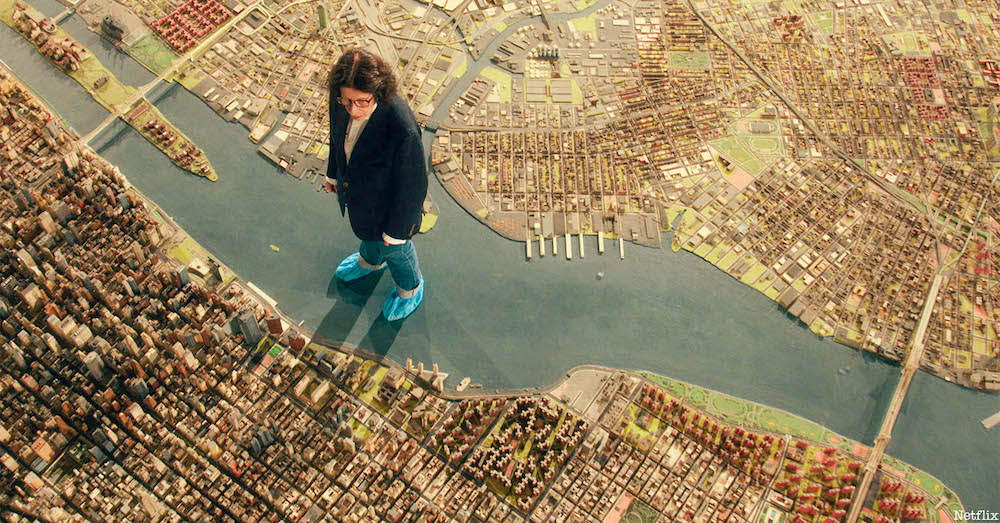
Fran Lebowitz on Netflix is the most Netflix thing ever.
The latest Scorsese-Lebowitz joint (they get together on camera about once a decade) is an exercise in fantastic pointlessness—which makes it oddly perfect viewing for the present moment. The limited series is arranged into seven episodes with titles and somewhat distinct themes, but it’s hard to imagine the interviews were any kind of organized, or that Scorsese had much in the way of a plan—it’s pretty clear he just parked her at a table and let her talk. Lebowitz is a flaneur-non-writer extraordinaire, her encounters and in turn her anecdotes borne largely of wandering around Manhattan, and part of the pleasure of Pretend It’s a City is the artfulness with which Scorsese went about turning what must have been kind of a spider web into something that’s kind of a clothesline.
Taking a page out of Dick Cavett’s book, Scorsese knows enough to pretty much keep quiet and out of the way when you’ve got a good subject (see Cavett’s 1980 mega-interview of Richard Burton). Other than footage cut in from theater appearances Scorsese and Lebowitz have done together, we almost never see him, though presumably he asked leading questions throughout the process. He is a masterful storyteller (his best movie is The King of Comedy, by the way) but she is a story as a story occurs in the imagination: scattered phrases and images in need of corralling and editing. She is an amalgam of observations piled up over half a century of New York life, the very life Scorsese has been tirelessly depicting in his features over roughly the same period of time. These sit-downs, rich in wry humor and absent any discernible agenda, are probably his idea of a vacation. And since Lebowitz no longer writes books, Scorsese is the closest thing the Story of Fran has to an editor.
But equally pleasing (in a nihilistic sort of way) is the fact that Scorsese’s efforts to shape and guide don’t really matter. I watched Pretend It’s a City in the order prescribed by Netflix, but if I had started with the last episode or in the middle of the third it wouldn’t have made much of a difference. The point of Pretend It’s a City is that Fran Lebowitz is there, without beginning or end. That’s basically the point of Netflix, too, and there is something satisfying about this kind of union between content and platform. It’s always there. Television as we used to know it is still on, somewhere, with a program schedule, but try getting anyone under the age of forty to respect it. Now, we decide what’s on, and that makes entertainment an iterative experience, just like life—especially life as many of us have been living it for the last year.
The feeling of timelessness is driven home by the repeated shot of Lebowitz arriving at The Players for her debriefings, by Lebowitz’s unchanging uniform of cuffed jeans, cowboy boots, white button-down shirt and blazer, and by the juxtaposition of clips filmed decades ago and only recently. She’s as integral to the city’s idea of itself as jaywalking and aluminum food carts. She’s always here; she’s always been here. That’s the story. Just pretend it’s a narrative—or better yet, don’t bother.
Raf Richardson-Carillo
Raf Richardson-Carillo is a writer who no longer lives in New York City.



















